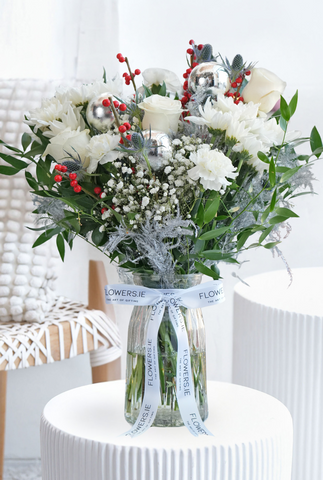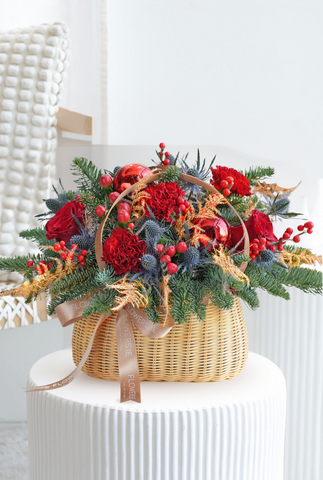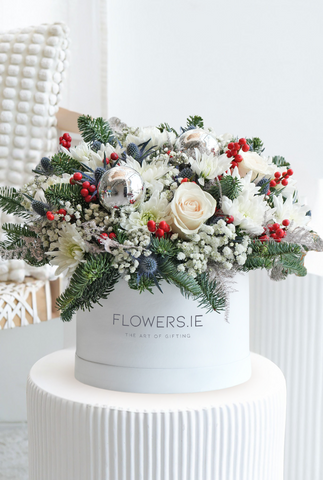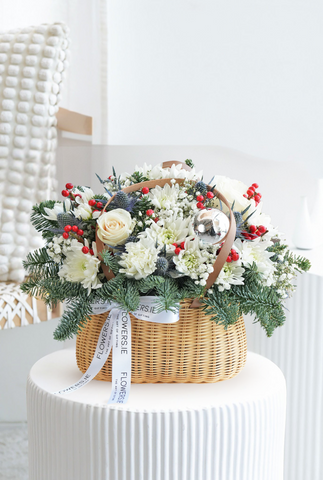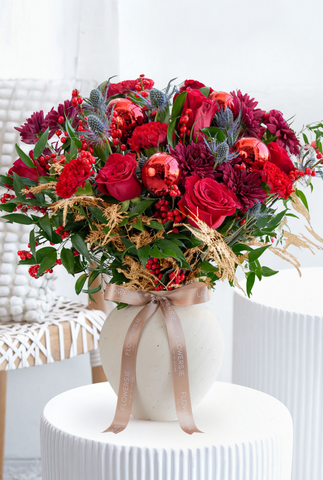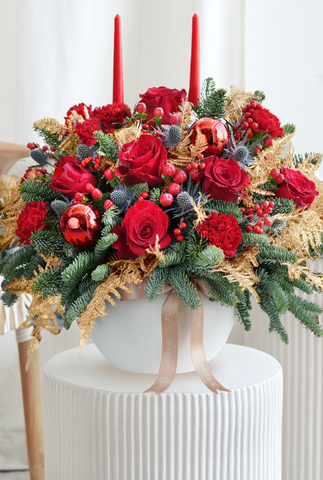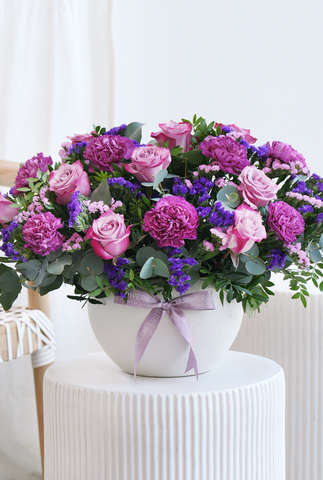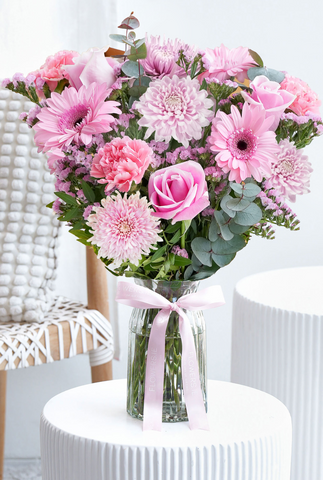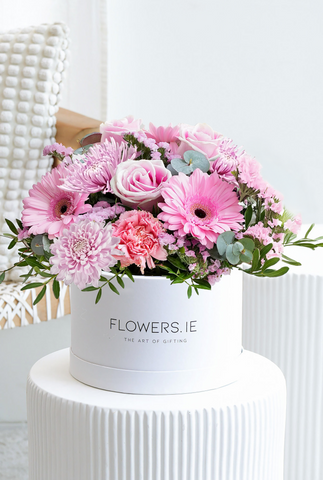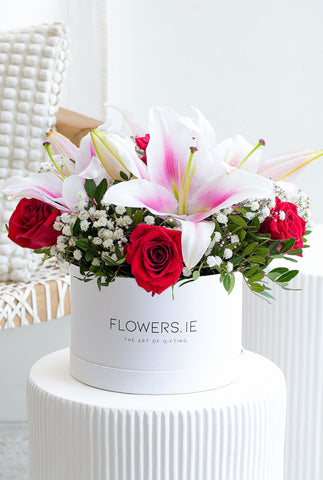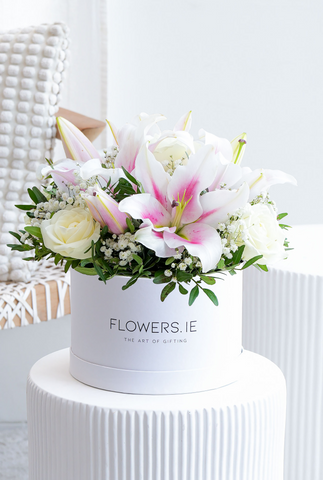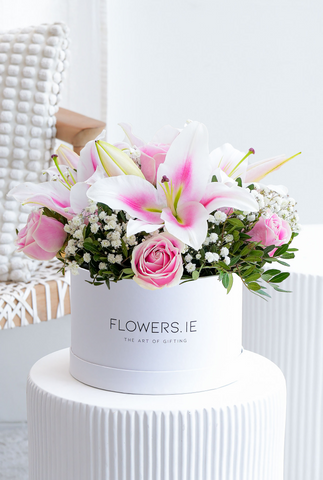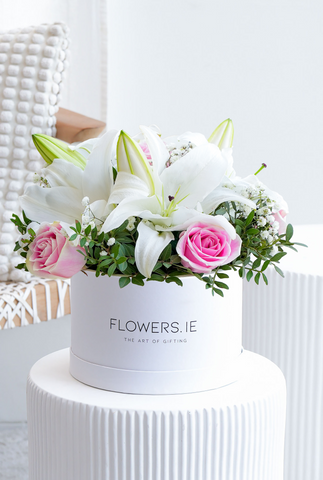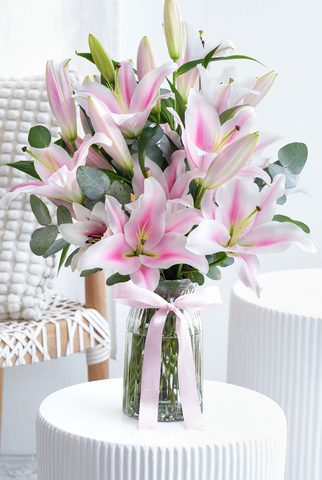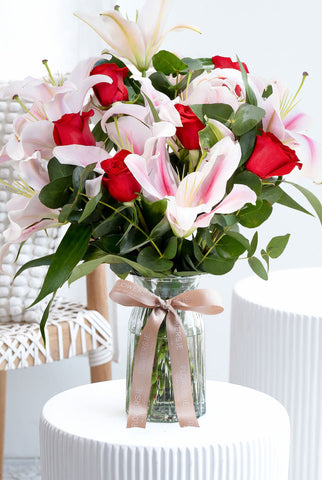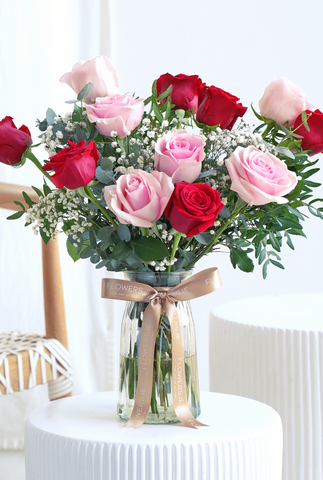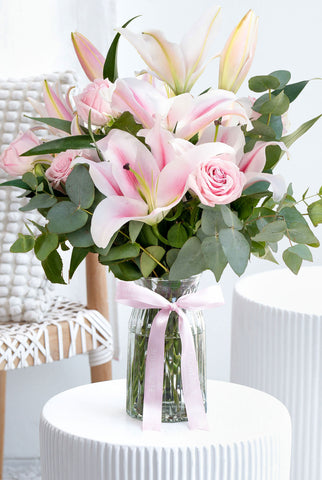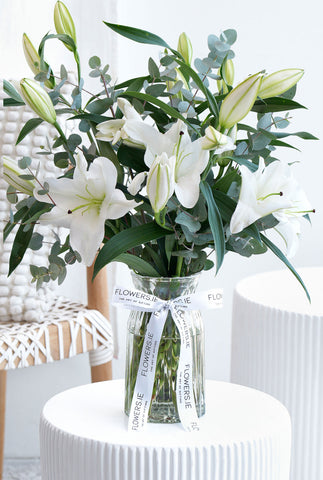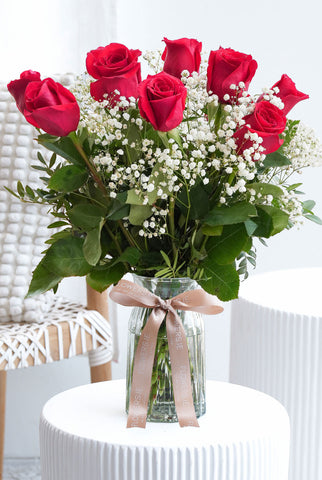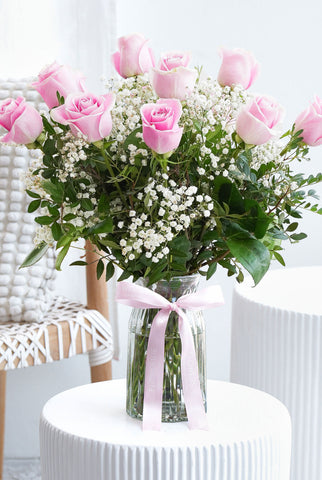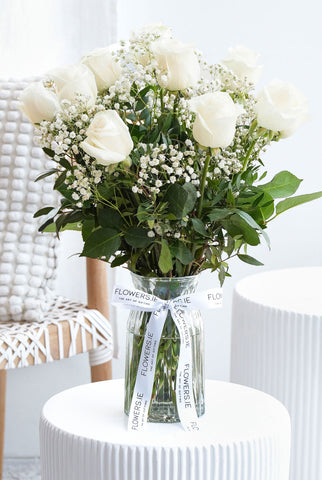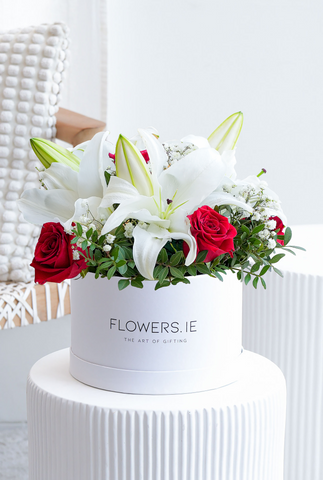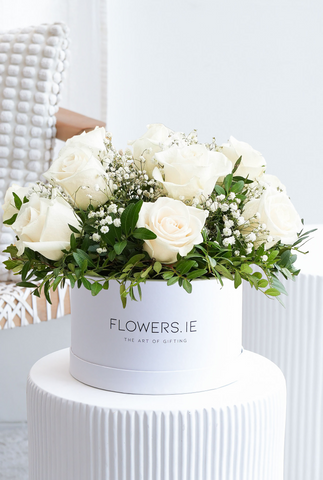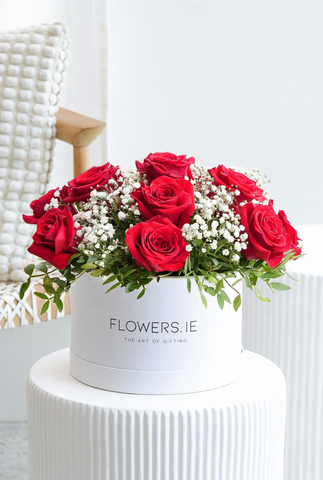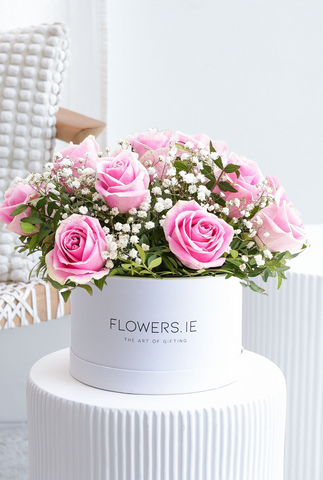What Are Carnation Flowers?
Carnations (scientific name: Dianthus caryophyllus) are one of the world’s most recognisable and cherished flowers. Sometimes called “pinks” due to their frilled petal edges and typical colouring, carnations are native to the Mediterranean and have been cultivated for over 2,000 years.
Loved for their versatility and affordability, carnations appear in everything from birthday bouquets and romantic gifts to funeral arrangements and Mother’s Day tributes.

What Do Carnation Flowers Look Like?
Carnations typically feature:
-
Soft, frilly petals in full, rounded blooms
-
Tall, slender stems with light green leaves
-
A rainbow of colours, from classic white and pink to vibrant red, yellow, purple, and even green
They’re available in both standard (single) and spray (multi-flower) varieties, making them ideal for everything from minimalist arrangements to bold, textural displays.
What Do Carnation Flowers Smell Like?
Carnations have a subtle, spicy-sweet fragrance reminiscent of clove or nutmeg. The scent is strongest in pink and white carnations, while other colours may carry a lighter aroma.
Their gentle scent makes them perfect for indoor settings, including living rooms, office desks, or hospital deliveries.
Where and When Do Carnations Grow?
Native to the Mediterranean region, carnations flourish in cool, temperate climates. While they typically bloom in late spring to early summer outdoors, modern greenhouse cultivation allows florists to offer fresh carnations all year round.
Thanks to their sturdy nature, they’re also among the longest-lasting cut flowers available — a big reason why they’re so popular in our Complete Range of floral arrangements.

How to Care for Carnation Flowers
Caring for carnations is easy and rewarding — they can last 10 to 14 days with the right care. Tips for Fresh Carnations:
-
Trim the stems at an angle and remove any leaves that sit below the waterline.
-
Change the water every 2–3 days.
-
Keep them in indirect sunlight, away from heat sources.
-
Add flower food or a pinch of sugar and lemon juice to the water.
Can Carnations Be Unsafe?
Carnations are generally safe, but they may cause mild irritation if ingested by pets. Cats and dogs that chew on carnations might experience stomach upset or drooling. While not highly toxic, it’s best to keep them out of reach of curious pets.
For households with pets or young children, displaying flowers in a secure spot is a simple way to enjoy their beauty safely.
What Does the Carnation Symbolise?
Carnations carry a long and meaningful history, symbolising a wide range of emotions and sentiments depending on their colour and cultural context. Their name is thought to derive from the Latin word carnis, meaning "flesh," referencing the flower’s original pink colour, or from incarnation, alluding to spiritual or divine love.
Throughout history, carnations have been associated with admiration, affection, and distinction. In ancient times, they were used in ceremonial crowns in Greek and Roman societies. In more recent centuries, they’ve been chosen to express everything from romantic devotion to respect and remembrance.
Each colour of carnation carries a specific meaning:
-
Red carnations express deep love, admiration, and affection.
-
White carnations represent purity, innocence, and remembrance.
-
Pink carnations are traditionally linked to gratitude and a mother’s enduring love.
-
Yellow carnations can signify joy and cheer, but in some traditions, they may also imply disappointment or rejection.
-
Purple carnations are often associated with whimsy or unpredictability.
-
Green carnations, popularised in the 19th century, have been used as symbols of uniqueness and identity.

What Occasions Are Carnations Suitable For?
Carnations are an incredibly adaptable flower, making them a thoughtful choice for a variety of celebrations and meaningful moments. With their rich symbolism and vibrant colour range, carnations add charm and emotion to any bouquet. Here are some of the most popular occasions where carnations shine:
-
Mother’s Day - Pink carnations are traditionally associated with a mother’s unconditional love. Their soft, delicate petals beautifully reflect affection, making them a perfect choice for honouring mums and mother figures.
-
Birthdays - Bright and cheerful, carnations are a wonderful way to celebrate someone’s special day. Their long-lasting blooms make them ideal for arrangements that stay fresh throughout the week.
-
Romantic Gestures - Red carnations symbolise deep love and admiration. Whether it’s an anniversary, date night, or just because, they’re a classic and meaningful addition to any bouquet.
-
Thank You Gifts - Offering a bouquet of carnations is a beautiful way to say “thank you.” Their elegance and long vase life make them a standout option for expressing appreciation.
-
Everyday Celebrations - From promotions to personal milestones, carnations bring colour, symbolism, and warmth to everyday wins and “thinking of you” moments.

Are Carnations Funeral Flowers?
Yes — especially white carnations, which symbolise remembrance, peace, and eternal love. They’re often used in funeral flower arrangements and sympathy bouquets, often alongside lilies, roses, or chrysanthemums.
They’re also durable, which is important for services and memorials where flowers may be displayed for longer periods.
Where Can I Buy Carnation Flowers in Ireland?
At Flowers.ie, we offer a curated selection of flower arrangements that feature carnations — whether you’re after a romantic bouquet, a get well gift, or a funeral tribute.
Each arrangement is hand-designed by our talented florists in Dublin or Galway, and we’ll even send you a video preview via WhatsApp or email before delivery.
✅ Same-day delivery available in Dublin, Kildare, and Wicklow
✅ Next-day delivery across the Republic of Ireland
✅ 100% satisfaction guarantee with over 17,000 5-star reviews









